Workers’ compensation is a form of insurance that employers purchase to cover illnesses and injuries related to employment. Even if some employers see this as a burdensome expense, providing workers’ compensation protects an employer in case an employee get injured or develops an illness on the job. Texas is the only state that doesn’t require workers’ compensation insurance. Insurance could cover:
- Medical treatment
- Lost wages
- Illnesses such as emphysema
- Death
- Injuries arising at work
Let’s examine the myths related to workers’ compensation insurance and the facts dispelling those notions.
Myth 1: After you pay workers’ comp, you don’t have any other responsibility
If an employer stays in contact with an employee during recovery, they can monitor for signs that the employee is ready to come back to work. Business owners can promote a “return to work program” which helps reduce the number of days lost to illness/injury and heightens productivity. It can also reduce increases in insurance premiums. When less wages are lost, claims and premiums drop.
Myth 2: Small businesses don’t have to provide workers’ comp
Workers’ compensation varies by state but many jurisdictions require businesses with one or more employees to carry the insurance. Coverage also is determined by the type of business. Most organizations in MIssouri must have a minimum of five employees for workers’ comp to be mandatory. There are a class of workers that are not included for worker’s compensation insurance. They are:
- Volunteers
- Private home employees
- Casual workers
- Business owners
- Independent contractors
- Maritime employees
- Farmers or farm hands
- Railroad employees
Federal employees are also not covered by state’s workers’ compensation because they are covered by a federal plan.
Fact 1: Workers’ compensation for injuries sustained at the workplace or while working for your employer
An employee may not be compensated for a purposefully sustained injury, but usually an injury that happens during your employment will be covered regardless if it is an injury caused by their own negligence. However, an injury caused by intoxication from drugs or alcohol do not get coverage.
Injuries sustained while on the job but not necessarily in the office are also covered by workers’ compensation. For example, a person who travels for work and experiences an injury during a business trip or business errand, that is covered by insurance. However, if the employee is on a break, they are not covered, even if they are still on the property.
Fact 2: Workers Comp Does Not Mean Immunity Against Litigation
Business owners are not immune from further litigation by an employee through their insurance. Some exceptions, varying from state to state, include a scenario where the injury was caused by an employer’s negligence. In this case, an employee can bypass workers’ comp and move forward with a personal injury suit for damages. Further, an employer can be sued for not providing workers’ compensation insurance.
Any business owner who wants to protect themselves from work-related claims should be safe and get worker’s compensation. Be sure to familiarize yourself with any legislation regarding such insurance claims depending on your state. Contact a business lawyer Memphis, TN, can recommend for help with any questions.
Thanks to our friends and contributors from Patterson Bray,for their insight into business law.


